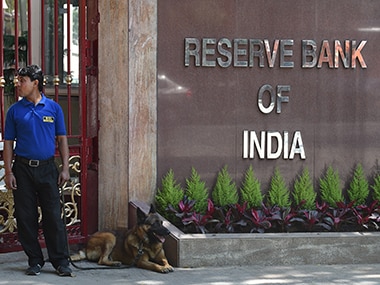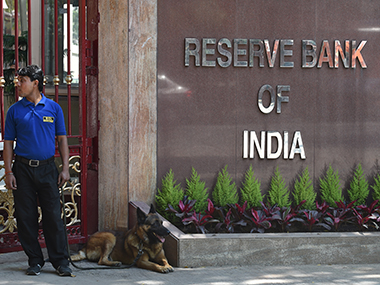The Modi government, and especially the finance ministry, may not see eye-to-eye with Raghuram Rajan’s Reserve Bank of India (RBI) on some issues, especially the need to immediately cut interest rates, but one thing on which there is an unseen partnership is the ending of cronyism. One of the big achievements of the NDA government is that it has sent cronies packing from the corridors of power in Delhi. This was made amply clear with the crackdown on corporate lobbyists earlier this year , which even led to the arrest of some corporate executives and journalists. [caption id=“attachment_2437596” align=“alignleft” width=“380”]  AFP[/caption] The buzz in the capital is that fixers and influencers are having a hard time trying to pressure the government on policies or placement of favoured persons. Specifically in the base of banks, where during the UPA regime top b ank posts were allegedly sold to claimants for payments ranging up to Rs 40-50 crore , this time around the bank boards bureau is not reporting any whispered calls from the political leadership to suggest candidate A or candidate B for big public sector bank posts. Cronyism in top-level bank appointments – which ultimately determines favoured treatment for big borrowers – has been significantly reduced. The Appointments Committee of Cabinet headed by the PM clears recommendations to top bank posts on the advice of the bank boards bureau. This is where pressure from the central bank to end cronyism is also playing its part. Rajan has been consistently upping the powers of banks in order to deal with recalcitrant borrowers, starting with a tightening of norms for the recognition and provisioning for bad debts, and later sharpening the focus on “wilful defaulters” . Yesterday (24 September), in a continuation of the scheme of strategic debt restructuring (SDR) announced last June, when the RBI allowed banks to take over shares and effect changes in management when required, it announced stronger provisions to enable the ouster of failed or crooked managements well before they became formal defaulters. Among other things, the RBI has decreed that the Joint Lenders’ Forum (JLF) of banks will be anchored by State Bank of India and ICICI Bank, the biggest public and private sector banks respectively, and that the empowered group of the JLF will have representatives at the level of executive directors who can take a call on how to deal with loans before they go fully bad. This group can decide whether or not to oust management even before their debts reach a level where they have to be rescheduled under a formal corporate debt restructuring (CDR) programme. In the earlier regime, the JLF was often manned by lower-level officers who were not empowered by their boards to take such decisions. Now, JLF will have real teeth. The new thing here is the joint public-cum-private sector stewardship of the process of dealing with potential defaulters. Both SBI and ICICI Bank have been declared domestic systemically important banks, which means even the RBI will be monitoring them closely on the quality of their assets. These banks are systemically “too big to fail” and will need to maintain higher equity capital. Their joint leadership of the JLF will have the net impact of tightening the noose on crony capitalism as big business borrowers usually get favours done through public sector banks where politicians have overlordship. The example of how public sector banks and ICICI Bank handled the Kingfisher loan default illustrates how the latter are able to protect themselves better against bad loans. Around mid-2012, when it was becoming obvious to one and all that Vijay Mallya’s company was going bust, ICICI Bank sold its entire Rs 430 crore loan to a private party and cut its exposure; the public sector banks stayed put and are now struggling to get Mallya declared a “wilful defaulter.” They will have to take huge hits on the bottomline, assuming they haven’t already done so. The short point is this: by making SBI and ICICI Bank standing members of the Joint Lending Forum’s Empowered Group, it will be difficult for the public sector banks to continue backing cronies when the private lender may take a different call. It will become difficult for politicians to help cronies out by using their power over public sector banks. Meanwhile, the government’s direct attack on dirty money – another attempt to pressure cronies – is scheduled to end on 30 September, when the compliance window under the Black Money (Undisclosed Foreign Income and Assets) and Imposition of Tax Act, 2015, ends. According to this Times of India report, barely 29 people have chosen to bare all to the taxman and pay the penalties. Under the law, those willing to declare illegally held assets abroad will not be prosecuted, but they have to pay 60 percent tax – 30 regular and 30 as penalty. At 60 percent, it does not make much sense for crooks to disclose and lose the bulk of their ill-gotten wealth, but we will know for sure if the scheme has worked in the next few days. This writer would have preferred a formal amnesty scheme for reasons of sheer pragmatism and raising revenues for growth. But the underlying message of the scheme is powerful: by giving black money no option but to pay for their follies, the government has made it clear that it does not want to mollycoddle those who broke the law. From both North Block and Mint Street, crony capitalism is receiving hard knocks. The only thing left to prove real intent is to get the first few businessmen off to jail so that the message goes home.
Even as the Modi government has banished corporate lobbies from Delhi’s durbar, the RBI is simultaneously enabling banks to turn the screws on crony capital by making it easier for them to remove managements. This trend needs to sustain
Advertisement
End of Article
Written by R Jagannathan
R Jagannathan is the Editor-in-Chief of Firstpost. see more


)

)
)
)
)
)
)
)
)



